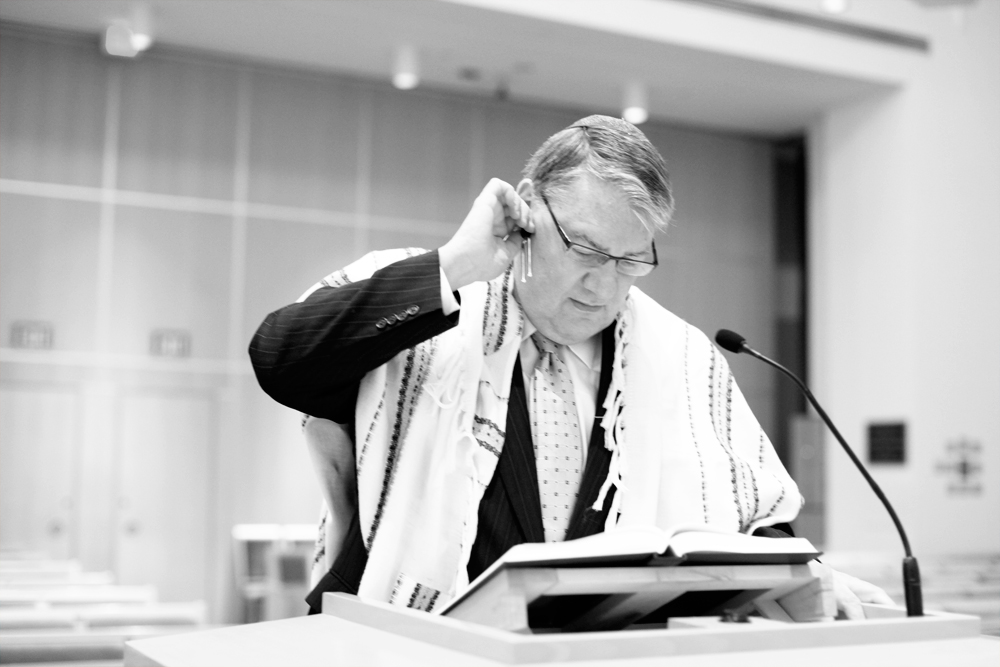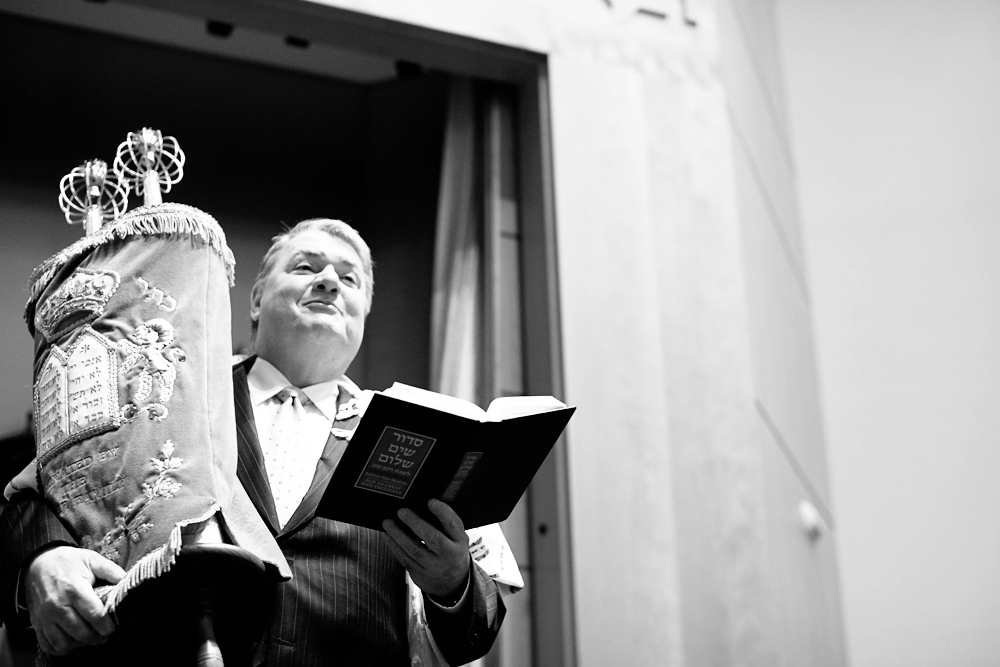Musical Chutz’pah of a Genius
[youtube http://youtube.com/w/?v=eW-B-FMjasE]
Some years ago, a beginning student came to my office for his first coaching session in Cha’za’nut and announced: “I want to study Glantz!” I told him: “You need to be able to walk, before you compete for Olympic Gold.” Notice I didn’t say run…
As a child, I was reared listening to Cha’za’nut. Mordechai Hershman, Yossele Rosenblatt, Zavel Kwartin, Pierre Pinchik and David Roitman were recorded staples. Berele Chagy, and the Kousevitzky brothers were the live models. I believed I had a handle on how the art form was to be presented. Then I came across that famous recording of Leibele Glantz singing Te’fi’lat Tal and She’ma Yis’ra’el, and my world was turned upside down! The musical Chutz’pah of this genius practically drove me mad! Let me try to explain why.
In Te’fi’lat Tal, Glantz opens: “Dew… grant it to favor the land.” He repeats the word “favor,” the second time in a more urgent tone, rolling the Hebrew letter Resh, settling quietly, on the word “land.”
In the next sentence, “Designate us for blessing in your joy,” Glantz sings a remarkable, shocking, ascending, coloratura, painting the words “designate us.” Then with a sweeter, softer, coloratura he highlights “blessing,” with a lovely, calm, resolution for “in your joy.” (One can sense the smile in his eyes).
“With abundant grain and wine by your bounty” is sung with a simple pre-resolution phrase in the lowered seventh major triad. However one
perceives a certain patting of the belly for the word “abundant.” “Re-establish (Jerusalem) the city of your desire” is divided into three descending phrases, like teardrops.
In “Your desire through dew,” “Your desire” is repeated. He does so very gently in G minor. Then, repeating the last word, he touches on the sixth note of the scale, mystically ascending upwards in the minor mode. Finally, in the last repetition of the word “Dew” he goes from minor, to another minor up a fourth, and incredibly changes into major, with a slight hesitation in order to emphasize, and then again back to minor, thereby creating a strong emotional effect.
What I have just described was only the first verse of the prayer. On the recording, Glantz sings the first and last verses. I distinctly remember lifting the needle of the Victrola record player, because I just had to hear it again and again before going on to the final verse.
“Through dew bless (our) food.” Here Glantz repeats the word “dew” three times: First he establishes the key, then, in two ascending moves, with a strong accent on top, he pounds it into our heads. The third repetition leads into “bless our foods.” One senses that Glantz is getting very emotional, however it is but the tip of the iceberg.
“In our bounty let there be no scarcity.” In the repetition of “In our bounty,” Glantz unleashes a tri-tone chord that makes the hairs on the back of your neck stand up. In the second part of the phrase there is an amazing coloratura on the words “no scarcity.” “To the people you had led like sheep,” Glantz chooses to sing “To the people” twice. The first, with an even wilder coloratura than on the former “no scarcity.”
The second is just indescribable! This is not mere singing of difficult coloratura.
This is “Hish’tap’chut Ne’fesh,” a pouring out of the soul.
Many great Cha’za’nim have sung with pathos, but Glantz’s pathos is more effective because it follows such magical, pure musical moments. It is the chiaroscuro[2] of the musicianship and emotional abandon that gets Glantz’s music to us like no one else!
“Please fulfill her desire through dew.” Appropriately, having said it all, Glantz ends the prayer in classical tradition, proceeding to the blessings of dew.
So, you want to study and emulate Glantz?
All you need is to have a limitless tenor range, perfect musicianship, be a world class Hebraist, and have emotions that can roam freely.
Good Luck!




